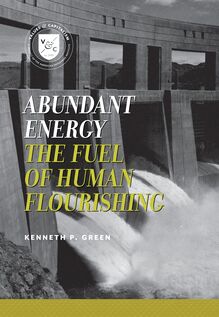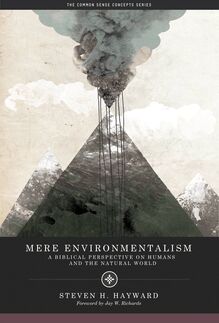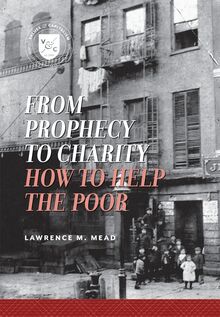-
 Univers
Univers
-
 Ebooks
Ebooks
-
 Livres audio
Livres audio
-
 Presse
Presse
-
 Podcasts
Podcasts
-
 BD
BD
-
 Documents
Documents
-
- Cours
- Révisions
- Ressources pédagogiques
- Sciences de l’éducation
- Manuels scolaires
- Langues
- Travaux de classe
- Annales de BEP
- Etudes supérieures
- Maternelle et primaire
- Fiches de lecture
- Orientation scolaire
- Méthodologie
- Corrigés de devoir
- Annales d’examens et concours
- Annales du bac
- Annales du brevet
- Rapports de stage
La lecture à portée de main
Vous pourrez modifier la taille du texte de cet ouvrage
Découvre YouScribe en t'inscrivant gratuitement
Je m'inscrisDécouvre YouScribe en t'inscrivant gratuitement
Je m'inscrisEn savoir plus
Vous pourrez modifier la taille du texte de cet ouvrage
En savoir plus

Description
Sujets
Informations
| Publié par | AEI Press |
| Date de parution | 16 octobre 2011 |
| Nombre de lectures | 0 |
| EAN13 | 9780844772059 |
| Langue | English |
Informations légales : prix de location à la page 0,0450€. Cette information est donnée uniquement à titre indicatif conformément à la législation en vigueur.
Extrait
Distributed by arrangement with the National Book Network 15200 NBN Way, Blue Ridge Summit, PA 17214 To order call toll free 1-800-462-6420 or 1-717-794-3800.
For all other inquiries please contact AEI Press, 1150 17th Street, N.W., Washington, D.C. 20036 or call 1-800-862-5801.
Copyright © 2011 by the American Enterprise Institute for Public Policy Research, Washington, D.C.
ALL RIGHTS RESERVED.
No part of this publication may be used or reproduced in any manner whatsoever without permission in writing from the American Enterprise Institute except in the case of brief quotations embodied in news articles, critical articles, or reviews. The views expressed in the publications of the American Enterprise Institute are those of the authors and do not necessarily reflect the views of the staff, advisory panels, officers, or trustees of AEI.
Green, Kenneth Philip, 1961-
Abundant energy : the fuel of human flourishing /
Kenneth P. Green.
p. cm. — (Common sense concepts:ideas for a free & gen)
Includes bibliographical references.
ISBN-13: 978-0-8447-7204-2 (pbk.)
ISBN-10: 0-8447-7204-6 (paper)
ISBN-13: 978-0-8447-7205-9 (ebook)
1. Energy policy—United States. 2. Energy—United States.
I. Title.
HD9502.U52.G719 2011
333.790973—dc23
ROADMAP
The goal of this book is to give readers the intellectual touchstones that will allow them to understand energy policy in a holistic and rigorous fashion.
In the introduction, we will discuss the subject of energy writ large, consider its role in our society, and examine the importance of understanding both energy and how energy policy might affect our society as well as others around the world.
In chapter 1, we will discuss humanity’s intimate relationship to the use of energy. We will see that, rather than being addicted to or dependent on energy use, human beings have adapted, over the millennia, to ever greater energy use and that adaptation has brought with it longer lives, better health, greater wealth, and vastly expanded opportunities for self-realization and development. Neither human beings nor our technological civilization can survive without energy. Expanding access to energy, especially in the developing world, should be a high priority for those concerned with reducing global poverty and bringing hope to a desperately poor swath of humanity.
In chapter 2, we will talk about the importance of energy affordability, an issue that is of particular importance to those concerned with alleviating poverty. We will see how energy infuses virtually everything that people make or do, from raising food to providing medical services. And we will see how raising the costs of energy, as it moves into and along the chain of production of goods and services, not only raises the costs of such goods and services but also disproportionally harms the poor, who use a greater share of their income paying for energy both directly and as a component of the goods and services they consume.
In chapter 3, we will discuss the devastating consequences that unreliability in energy systems—in this case electricity—can wreak upon our energy-based society, as we study the great blackout of 2003. We will learn how unreliability can cause significant economic harms, as well as great human suffering. As the world turns to ever greater adoption of intermittent forms of energy, such as wind and solar power, it is vital that we ensure a reliable flow of electricity. Currently, technologies that can store wind and solar energy in order to increase their reliability are costly and insufficient to allow for rapid, large-scale deployment of these technologies without risking destabilization of our electricity supply.
In chapter 4, we will discuss the relationship between energy and the environment. No one can deny that energy production, distribution, and use inflict significant health and environmental impacts both locally and globally. But understanding the relationship between energy and the environment requires an understanding of the relationship between energy-stimulated societal wealth creation and environmental protection. As we will see, mainstream environmentalism has misunderstood the nature of environmental progress in general, as well as how it pertains to energy use. Contrary to the free-lunch claims of many environmentalists, we will show that environmental protection is something that can be provided only by countries that are wealthy enough to afford it. We will also show that energy use, as a key factor in production, is in fact the resource that generates that wealth. We conclude that more, and more-affordable, energy is needed to enable more environmental protection in the developed world, but most especially in the developing world, where energy poverty results in vastly higher levels of environmental despoliation and poses harms to human health.
In chapter 5, we will turn to the question of energy transitions. For decades, politicians of both parties have pledged to change our energy systems quickly, whether toward reducing imports, changing the way we distribute our energy, or, as it is in much discussion today, changing the way we produce energy, from fossil fuels to other sources such as wind power, solar power, and biofuels. What we will see, however, is that contrary to political wishes, energy systems are slow to change. Power plants, energy infrastructure, and energy-consuming equipment such as boilers, diesel trucks, airplanes, and smelters are long-term investments, with cost-recovery cycles that span decades. Like an aircraft carrier, our energy system has both inertia and momentum that makes it slow to accelerate, slow to decelerate, and slow to change course. Politicians specialize in putting forward “aspirational” goals for rapid, massive changes to energy systems. But to the extent we divert resources toward such goals, we are fighting against the tide of energy-system history, and we risk neglecting existing energy systems that we will depend on for decades to come.
In chapter 6, we will examine the slippery concept of “energy security,” which has been the stated goal of many a presidency and which is a ringing call that regularly falls from the tongues of those who wish to reduce energy imports, stop enriching our enemies, prevent economic harms from energy price shocks or supply disruptions, and so on. Alas, as with most questions relating to energy, digging into the question of energy security raises more questions than it answers. Do we want to end imports from say, Canada or Mexico, two of our largest suppliers? Are we willing to see the losses in trade that will come from other countries countering any import restrictions we may impose on the things they buy from us? Are we willing to have more of our own land area consumed with biofuel farms and accept the devastating environmental impacts we have seen from even limited replacement of gasoline with corn-based ethanol? Are we willing to export ecosystem devastation as developed countries convert rainforests to biofuel plantations to slake the energy thirst of the developed world?
Finally, in chapter 7, we will explore what may be the greatest danger of all in considering quick changes to our energy society: the risk of dramatic, unintended consequences, consequences that are more likely to happen when central planners, who bear no responsibility for the consequences of their action, are given power over large elements of our energy markets. The example we will study is the tale of corn-based ethanol, which succeeding governments have required to be incorporated into the nation’s gasoline supply. We will see how an action originally intended to benefit human health and the environment by reducing air pollution has actually led to the worsening of air pollution, water pollution, wildlife endangerment, oceanic dead zones, and more. The same cautionary tale applies to wind energy and solar power, both of which are increasingly failing tests of environmental beneficence and economic affordability.
This book is not intended to convey a detailed review of our energy use as a nation. One would be hard-pressed to do that with several shelves worth of dense information. This book would, in fact, be too short to give a detailed review of energy use in a city, suburb, single-family home, or even an individual’s day-to-day life. From the time we wake until the time we sleep, our consumption of energy is virtually seamless. One could easily write a long book just detailing and contextualizing where all the energy comes from to make and operate a mere handful of devices such as a laptop computer, plasma television, wind turbine, or solar panel. I will try to give enough details and concrete examples to help the reader think about energy issues, particularly energy policy—the myriad set of rules, regulations, government interventions, and private actions that cumulatively produce, import, export, distribute, and account for the costs of energy use.
Still, the primary purpose of this book is to introduce and discuss a set of energy-policy concepts that can help people better understand the energy civilization in which we live and better understand and contextualize arguments over specific energy policies. I have written this book as a series of complementary essays that can also stand alone in order to offer greater flexibility to readers who may have an interest in only one or another element of energy policy. We will start by examining the fundamental nature of our relationship to energy use and then turn to some recently proposed changes we might make to our energy systems.
After reading this book, readers confronted with a new energy proposal should be better equipped to evaluate how that proposal relates to preserving the benefits of our energy-based civilization; energy abundance; energy affordability; energy reliability; energy independence and security; energy and the environment, and the nature
-
 Univers
Univers
-
 Ebooks
Ebooks
-
 Livres audio
Livres audio
-
 Presse
Presse
-
 Podcasts
Podcasts
-
 BD
BD
-
 Documents
Documents
-
Jeunesse
-
Littérature
-
Ressources professionnelles
-
Santé et bien-être
-
Savoirs
-
Education
-
Loisirs et hobbies
-
Art, musique et cinéma
-
Actualité et débat de société
-
Jeunesse
-
Littérature
-
Ressources professionnelles
-
Santé et bien-être
-
Savoirs
-
Education
-
Loisirs et hobbies
-
Art, musique et cinéma
-
Actualité et débat de société
-
Actualités
-
Lifestyle
-
Presse jeunesse
-
Presse professionnelle
-
Pratique
-
Presse sportive
-
Presse internationale
-
Culture & Médias
-
Action et Aventures
-
Science-fiction et Fantasy
-
Société
-
Jeunesse
-
Littérature
-
Ressources professionnelles
-
Santé et bien-être
-
Savoirs
-
Education
-
Loisirs et hobbies
-
Art, musique et cinéma
-
Actualité et débat de société
- Cours
- Révisions
- Ressources pédagogiques
- Sciences de l’éducation
- Manuels scolaires
- Langues
- Travaux de classe
- Annales de BEP
- Etudes supérieures
- Maternelle et primaire
- Fiches de lecture
- Orientation scolaire
- Méthodologie
- Corrigés de devoir
- Annales d’examens et concours
- Annales du bac
- Annales du brevet
- Rapports de stage












